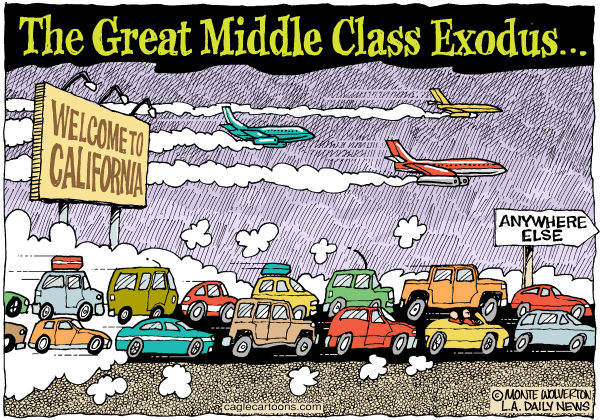
Something that has bothered me about involuntary societies since fully understanding the idea has been the inherent lack of choice, and the subsequent lack of learning from the act of making individual choices, be they positive or negative.
Life is an opportunity, not a guarantee, with the opportunity to fail also delivering the potential for cognitive growth. What life gives us in these opportunities is the chance to excell in a higher capacitive reasoning potential. By learning from failure today, we have the chance to succeed tomorrow. As parents, we are charged with raising our children to be the keepers of tomorrow's world, and without our knowledge, experience, and guidance, how can we expect to hold a legitimately optimistic view of what tomorrow's world will hold?
I say this not only as a parent, but as inequality who teaches his children to respect others by respecting ourselves, but by trying to pass that understanding on to other parents. As George Carlin said, "don't just teach your children, teach themto question everything." How else can we make the future better than the present?
One of the most malignant features of modernity since the French Revolution has been the attempt by the State—left or right, fascist, nationalist, socialist, or communist—to take over control of children's education from parents and local agencies—such as churches and municipalities—and direct that education in the interest of grandiose, intellectually neat, or more efficient plans and aims. The Philosophes and Jacobins of "Enlightenment" and Revolutionary France were the chief originators and evangelists of this program, but its subsequent development has had left-wing, right-wing, and even innocuous-seeming democratic or patriotic forms.
With the rise of the state in opposition to individuality, along with the learning experience facilitated by the consequences of bad choices, we see an erosion of natural rights, whereby individuals are discouraged from recognizing the failures of collectivism. There is hardly anything democrat about a society without an opt-out policy. Modern governments are more than willing to use violence against the peasants to show that the oligarchy shall not be questioned. By withdrawing consent to be governed, we effectively relegate laws against victims of victimless-crimes to the history books, a distant reminder of a world when common sense was anything but. I may disagree with the faithful on the origin of the effort, but the goals are not entirely dissimilar; an end to violence.
In the aftermath of World War II, after a century and a half of ultimately tragic and destructive attempts by left-wing, right-wing, or simply radically-secular states to wean children from their parents and local and religious loyalties and influences in the interest of state-directed education, many Western European nations and the U.N. Declaration of Human Rights (1948) clearly asserted that "parents have a prior right to choose the kind of education that shall be given to their children," in the words of the Declaration. With the fall of Communism, after 1990 new national constitutions in eastern Europe affirmed the provision their Western neighbors had made in the preceding decades, a noble story told well by Charles L. Glenn in Educational Freedom in Eastern Europe (1995). This provision included forms of tax relief or support that would enable parents to make such choices.
More:
http://www.crisismagazine.com/2012/parents-vs-the-state
I believe that to best serve our children, we need to foster in them a critical view of the world, every aspect, and hope that they can find the best in everything.
By removing the ability to learn from our experiences (even failure), we are truly being teachers for our children. What happens in a society in which repercussions are suppressed (in both social and economic realms) is that we dontnlearn from our experiences.
With problems like drug addiction, where historically abuse of a substance is statistically insignificant until the state see fit to enact regulatory prohibition of some sort, is that we see a spike in instances of such issue. As with a child, telling them not to do something and teaching them about the consequences of the same action have quite varying outcomes. When we tell our children not to smok or drink alcohol, where teaching about the negative consequences of the same action result in caution and consideration. Historically, issues like drug usage and firearm violence rise with prohibition.
If we expect our children to succeed, shouldn't we prepare rather than hindering them?












finance armageddon